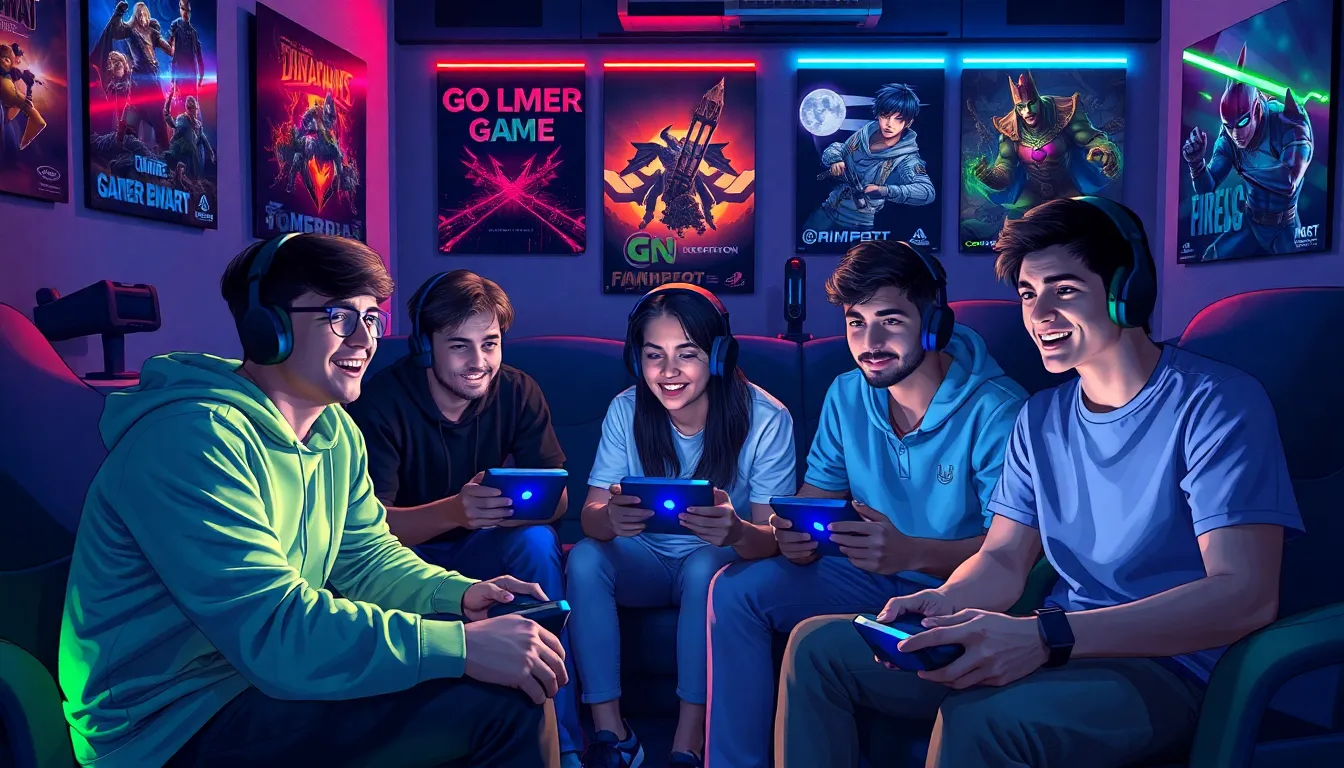In a world where gaming is as common as breathing, the rise of game overdertoza addiction is a phenomenon that’s hard to ignore. Imagine pouring hours into a game only to realize you’ve leveled up in procrastination instead of real life. It’s like chasing a high score while your laundry piles up and your plants start to question their existence.
Game Overdertoza Addiction
Game Overdertoza addiction represents a significant concern in the gaming community. Players often struggle to balance virtual experiences with their real-world responsibilities.
What Is Game Overdertoza?
Game Overdertoza is an immersive gaming experience characterized by its engaging gameplay and intricate storytelling. Players often lose track of time while navigating its complex environments. This addiction arises when individuals prioritize gaming over essential life activities, leading to detrimental effects on their health and relationships. Many find themselves trapped in a cycle of constant play, neglecting other interests or commitments. As the engagement deepens, the line between gaming as entertainment and compulsive behavior blurs.
Symptoms of Addiction
Common symptoms of Game Overdertoza addiction include persistent gaming, withdrawals from social interactions, and neglection of daily chores. Players may experience feelings of irritability when unable to access the game. Other signs encompass declining performance in school or work, disrupted sleep patterns, and a diminished interest in hobbies outside gaming. It’s crucial for observers to note these behaviors as indicators of potential addiction. Engaging excessively often results in a loss of initial enjoyment, transforming gaming into a source of stress instead of relaxation.
Causes of Game Overdertoza Addiction

Game Overdertoza addiction stems from a combination of psychological factors and social influences contributing to compulsive gaming behaviors. Understanding these elements sheds light on how individuals become increasingly engrossed in this immersive gaming experience.
Psychological Factors
Psychological aspects play a critical role in Game Overdertoza addiction. Players often seek an escape from reality, finding solace in gaming as a way to cope with stress or anxiety. The game’s narrative intricacies and emotional engagement create a sense of achievement, leading to a desire for prolonged play. Compulsive players may experience a decline in self-control, causing them to prioritize gaming over responsibilities. This prioritization reinforces behavioral patterns that lead to isolation and withdrawal from real-world interactions. Gamers at risk may also grapple with underlying mental health issues, making them more susceptible to addiction.
Social Influences
Social factors significantly impact Game Overdertoza addiction. Peer pressure can create a compelling urge to engage frequently in gaming communities. Many players feel a strong need to connect with friends, leading them to prioritize time spent in-game over social interactions outside of gaming. Group dynamics further enhance the immersive experience, making it hard for individuals to disconnect from the game. Online forums and follower networks often reinforce this culture, normalizing excessive play and encouraging players to share their gaming achievements. This social reinforcement strengthens the addiction, creating an environment where real-life responsibilities become secondary to gaming.
Effects of Game Overdertoza Addiction
Game Overdertoza addiction significantly impacts players’ mental and daily lives. The consequences extend beyond gaming, affecting various aspects of personal well-being.
Mental Health Implications
Game Overdertoza addiction links closely to mental health challenges. Anxiety levels often rise, driven by the compulsive need to play. Depression follows as individuals isolate themselves, missing out on social interactions. In some cases, players develop obsessive thoughts around gaming, compromising their ability to focus on other tasks. Irritability also emerges in individuals forced to stop playing, indicating a negative emotional response. These mental health issues can escalate, necessitating intervention or support.
Impact on Daily Life
Daily life suffers due to Game Overdertoza addiction. Essential responsibilities often take a backseat to gaming, leading to neglected chores and deteriorating relationships. Students frequently experience declining academic performance as they prioritize gaming over studying. Employment can also be jeopardized, with workers missing deadlines or exhibiting decreased productivity. Time management becomes nearly impossible, creating an imbalance that prevents a fulfilling daily routine. Friends and family may feel sidelined, straining personal connections further.
Treatment Options for Game Overdertoza Addiction
Various treatment options exist for individuals struggling with Game Overdertoza addiction. Players can choose between professional help and self-help strategies, tailored to their unique circumstances.
Professional Help
Professional help often provides the most structured support. Therapists who specialize in addiction can offer cognitive behavioral therapy. This approach targets negative thought patterns and behaviors, helping individuals regain control. Support groups also connect players with others facing similar challenges, fostering a sense of community. Experts in addiction medicine may recommend counseling sessions or support programs specifically designed for gaming addiction. In more severe cases, inpatient treatment facilities may provide a focused environment for recovery. Comprehensive evaluations ensure that treatment plans meet personal needs.
Self-Help Strategies
Self-help strategies empower individuals to take charge of their recovery. Setting clear gaming limits helps establish boundaries, preventing excessive play. Players can also engage in alternative activities, such as exercise or hobbies, to reduce gaming time. Journaling provides insight into gaming habits, encouraging reflection on triggers and patterns. Designating tech-free zones fosters healthier environments by promoting real-life interactions. Utilizing apps that track gaming time can enhance accountability. Connecting with friends outside of gaming can combat isolation, encouraging supportive relationships. By incorporating these strategies, individuals cultivate healthier gaming habits while improving their overall well-being.
Gaming Habits
Game Overdertoza addiction poses a real threat to individuals’ well-being and daily lives. As players become increasingly engrossed in their virtual worlds they risk neglecting essential responsibilities and relationships. Recognizing the signs of this addiction is crucial for timely intervention.
By seeking professional help or employing self-help strategies players can regain control over their gaming habits. It’s essential to strike a balance between enjoying gaming as a form of entertainment and maintaining a fulfilling real-life existence. With the right support and commitment to change individuals can overcome the challenges posed by Game Overdertoza addiction and foster healthier lifestyles.

